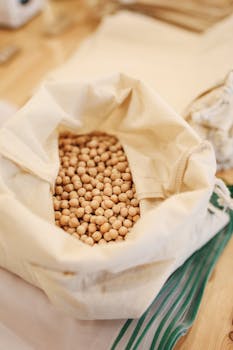Squash is a popular and nutritious vegetable for humans, but is it safe for your furry friend? If you've been wondering whether dogs can eat squash, you're not alone. Many pet owners are curious about incorporating this tasty veggie into their dog's diet. The good news is that squash can be a healthy addition to your dog's meals when prepared correctly, but there are some important things to keep in mind.
🍠 Can Dogs Eat Squash? The Basics
Yes, dogs can eat squash! Most types of squash are safe and even beneficial for dogs when served in moderation. Squash is packed with essential nutrients like vitamins A, C, and E, as well as fiber, which can support your dog's overall health. However, not all squash is created equal, and improper preparation can pose risks.
Here’s what you need to know about different types of squash and how to serve them safely to your pup.
🥒 Types of Squash Dogs Can Eat
Squash comes in many varieties, and most are safe for dogs. Here are some common types:
- Butternut squash – A sweet and nutritious option high in vitamin A and beta-carotene.
- Acorn squash – Rich in fiber and potassium, acorn squash is another great choice.
- Spaghetti squash – Low in calories and a good source of vitamins B6 and C.
- Zucchini – Technically a summer squash, zucchini is hydrating and easy to digest.
- Pumpkin – While not always classified as squash, pumpkin is similar and offers digestive benefits.
These squashes can be served cooked and plain, without any added seasonings, salt, or butter. Avoid canned squash products with added sugars or spices, as they can upset your dog’s stomach.
💪 Health Benefits of Squash for Dogs
When prepared properly, squash can provide several health benefits for your dog. Here’s how this veggie can support their well-being:
- Improved digestion – The high fiber content in squash can help regulate your dog's digestive system, relieving constipation or diarrhea.
- Healthy skin and coat – Squash is rich in antioxidants and vitamins like A and E, which promote skin and coat health.
- Boosted immunity – Vitamins C and A in squash can strengthen your dog’s immune system.
- Weight management – Low in calories and high in nutrients, squash is a great treat for dogs on a diet.
- Eye health – The beta-carotene in squash supports healthy vision and eye function.
These benefits make squash a valuable addition to your dog’s diet when served appropriately.
⚠️ Risks of Feeding Squash to Dogs
While squash is generally safe for dogs, there are some risks to be aware of:
- Choking hazard – Raw squash or large chunks can be difficult for dogs to chew and swallow, leading to choking.
- Digestive upset – Feeding too much squash or introducing it too quickly can cause diarrhea or gas.
- Seeds and skin – Squash seeds and tough skin can be hard for dogs to digest, so it’s best to remove them before serving.
- Seasonings and additives – Butter, garlic, onions, and spices often used in human squash recipes are toxic to dogs.
To minimize these risks, always cook squash thoroughly, remove the seeds and skin, and serve it plain in small amounts. Start with a small portion to see how your dog reacts, especially if they’ve never tried squash before.
🍳 How to Prepare Squash for Dogs
Preparing squash for your dog is simple, but it’s important to follow these steps to ensure it’s safe:
- Wash the squash thoroughly to remove dirt or pesticides.
- Peel the squash and remove the seeds, as these can be difficult for dogs to digest.
- Cook the squash by steaming, boiling, or baking. Avoid frying or adding any seasonings.
- Let the squash cool, then cut it into small, bite-sized pieces for easy chewing.
- Serve as an occasional treat or mix it into your dog’s regular food for added nutrients.
Cooked squash can also be mashed into a puree and frozen in small portions for a refreshing summer treat.
🛑 When to Avoid Squash
While most dogs can safely eat squash, there are situations where you should avoid feeding it:
- Allergies – Some dogs may have sensitivities or allergies to squash. Watch for signs like itching, vomiting, or diarrhea.
- Underlying health conditions – If your dog has specific dietary restrictions or health issues, consult your vet before introducing squash.
- Unripe or spoiled squash – Always use fresh, ripe squash. Moldy or spoiled squash can make your dog sick.
If you’re unsure whether squash is right for your dog, a quick chat with your vet can help clarify.
FAQs
Can dogs eat raw squash?
Raw squash is not recommended for dogs as it can be difficult to chew and digest. Cooking squash makes it safer and easier for your dog to enjoy.
How much squash can I give my dog?
Start with a small portion, such as a tablespoon for small dogs or a few tablespoons for larger breeds. Too much squash can cause digestive upset.
Is zucchini the same as squash?
Zucchini is a type of summer squash and is safe for dogs to eat. It’s low in calories and high in hydration, making it an excellent option.
Can puppies eat squash?
Yes, puppies can eat squash in moderation. Be sure to cook it thoroughly and introduce it gradually to avoid upsetting their sensitive stomachs.
What should I do if my dog has an adverse reaction to squash?
If your dog shows signs of an allergic reaction, such as vomiting, diarrhea, or itching, stop feeding squash and contact your vet for advice.
Book a $49 online vet consultation at https://www.dialavet.com for fast, expert advice.








